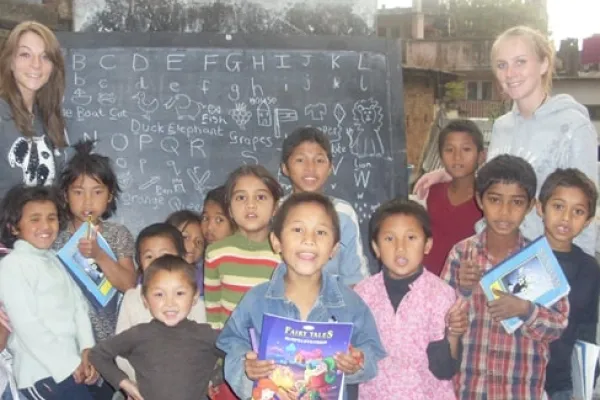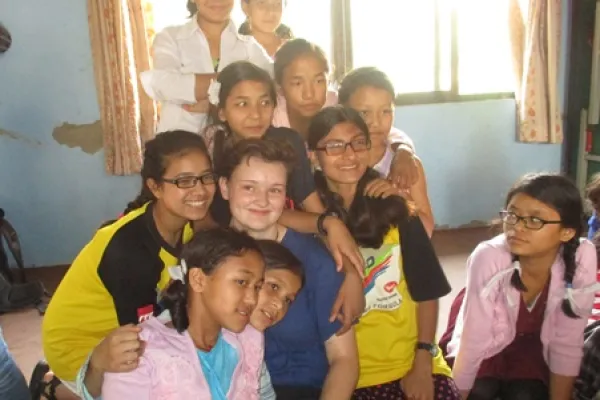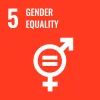Overview
Das medizinische Praktikum in Nepal ist eine ideale Plattform für ausländische Studierende mit medizinischem, medizinischem und pflegerischem Hintergrund. Studierende, die an diesem Programm teilnehmen, werden in lokalen Krankenhäusern untergebracht, sowohl in privaten als auch in staatlichen und medizinischen Kliniken.
Ein Praktikum im Rahmen des medizinischen Praktikumsprogramms in Nepal bietet angehenden Gesundheitsfachkräften eine unschätzbare Gelegenheit, ihr Wissen und ihre Fähigkeiten zu erweitern. Unter Anleitung erfahrener Ärzte und Pflegekräfte erhalten medizinische Praktikanten Einblick in die Gesundheitspraktiken Nepals und beobachten eine Reihe von Verfahren und Behandlungen. Dieser Einblick bereichert nicht nur ihr Verständnis globaler medizinischer Systeme, sondern verschafft ihnen auch einen deutlichen Vorteil in ihrer medizinischen Karriere, der sie von ihren Kommilitonen an der Universität abhebt.
Das Praktikum ist so strukturiert, dass Medizinstudenten mit lokalen Gesundheitsfachkräften zusammengebracht werden. So erhalten sie klinische Erfahrung und haben gleichzeitig die Möglichkeit, in einem dynamischen Umfeld direkt von den Praktikern zu beobachten und zu lernen. Dieses Programm ist für Medizinstudenten und Medizinstudenten konzipiert und bietet eine ideale Plattform, um praktische Erfahrung zu sammeln, klinische Fähigkeiten zu verfeinern und ein umfassendes Verständnis für die Patientenversorgung in einem sich entwickelnden Gesundheitssystem aufzubauen.
Bei medizinischen Praktika in Nepal haben die Teilnehmer die Möglichkeit, Fachkräfte in folgenden Bereichen zu beobachten und zu unterstützen:
Notfallversorgung
Intensivstation
Neugeborenen-Intensivstation
Zentraleinheit
Blutbank
Radiologie - CT-Scan, Ultraschall, Röntgen und Mammographie
Endoskopie
Koloskopie
EKG
Echokardiographie
Immunisierung
Physiotherapie
Pathologie
Pflege
HNO
Allgemeinmedizin
Magen-Darm
Orthopädie
Kardiologie
Pädiatrie
Pflege
Praktikanten können zwischen verschiedenen Abteilungen wechseln, um ein umfassendes Verständnis der Prioritäten im Gesundheitswesen zu erlangen. Die Aufsicht wird von lokalen Gesundheitsteams übernommen, darunter Ärzte, Krankenschwestern und Abteilungsleiter, die Praktikanten durch ihre Aufgaben und Lernerfahrungen führen.
Die Teilnahme an diesem Programm fördert das berufliche Wachstum und trägt zu einem tieferen Verständnis der Herausforderungen und Innovationen im Gesundheitswesen in Nepal bei. Für Studierende, die eine transformative Erfahrung suchen, die ihre medizinischen Karriereaussichten verbessert, bietet dieses Praktikum sowohl akademische als auch persönliche Entwicklungsmöglichkeiten.
Beispiel für ein Platzierungsprofil - Manmohan Memorial Medical College and Teaching Hospital
Das Manmohan Memorial Medical College and Teaching Hospital in Swoyambhu-15, Kathmandu, ist eine führende Gesundheitseinrichtung, die ein breites Spektrum an medizinischen Dienstleistungen und Ausbildungsmöglichkeiten bietet. Mit einer Kapazität von 300 Betten bietet das Krankenhaus umfassende Versorgung in mehreren Fachrichtungen, unterstützt durch moderne Einrichtungen und Spitzentechnologie. Zu den wichtigsten Dienstleistungen gehören Notfallversorgung, Intensivstation, Neugeborenenintensivstation, CCU, Blutbank, CT-Scan, Ultraschall, Röntgen, Mammographie, Endoskopie, Koloskopie, EKG, Echokardiographie, Immunisierung, Physiotherapie, Pathologie und mehr. Weitere Angebote umfassen Yoga-Sitzungen, Familienplanungsberatung, HNO-Behandlung und Apothekendienste.
Dieses Krankenhaus ist einer der Einsatzorte für das medizinische Praktikumsprogramm von Volunteering Solutions in Nepal, wo Teilnehmer Erfahrungen und wertvolle Einblicke in das nepalesische Gesundheitssystem gewinnen können. Ein Praktikum am Manmohan Memorial Medical College bietet eine einzigartige Gelegenheit, qualifizierte medizinische Fachkräfte zu beobachten, bei der Patientenversorgung zu helfen und zum Wohlergehen der Gemeinschaft beizutragen. Es ist ein ideales Umfeld für Medizinstudenten und Medizinstudenten, die ihre praktischen Fähigkeiten verbessern und ihr Verständnis für Gesundheitspraktiken in einem globalen Kontext vertiefen möchten.
Arbeitszeitplan für Praktikanten
Arbeitszeitplan für Praktikanten
Freiwillige, die am medizinischen Praktikumsprogramm in Nepal teilnehmen, werden bei einer Gastfamilie oder in einem Freiwilligenhaus untergebracht. Beide Unterkünfte befinden sich in der Nähe der Einsatzstelle und bieten Verpflegung. Ein typischer Zeitplan für die Freiwilligenarbeit in Nepal sieht folgendermaßen aus:
Sonntag - Ankunft in Kathmandu
Montag – Orientierungssitzung durch den lokalen Koordinator zu Themenbereichen wie Sicherheit, Kultur, Sprache, Sehenswürdigkeiten, Verhalten, Essen und mehr. Anschließend folgt ein Besuch der Unterbringungseinrichtung in Begleitung des lokalen Koordinators, um die Unterbringung und die Insassen kennenzulernen.
Dienstag bis Freitag - Freiwilligenarbeit
Frühstück - ab 08:00 Uhr
Freiwilligenarbeit im Einsatzgebiet - 09:00 bis 12:30 Uhr und 14:00 bis 17:00 Uhr
Mittagessen – 13:00 Uhr (wird in der Unterkunft bereitgestellt)
Abendessen - 19:00 Uhr
Wochenenden – Frei, um die Stadt zu erkunden (Freitag/Samstag/Sonntag wird kein Mittagessen angeboten)
Ab der zweiten Woche gilt der gleiche Arbeitsplan für Freiwillige
Hinweis: Bitte beachten Sie, dass der Zeitplan je nach Projekt, an dem der Freiwillige teilnimmt, variieren kann.
Rollen und Verantwortlichkeiten von Praktikanten
Rollen und Verantwortlichkeiten von Praktikanten
Die den Praktikanten zugewiesenen Aufgaben richten sich streng nach ihrem Ausbildungsniveau und ihrer Erfahrung. Während Medizinstudenten vor allem die Ärzte und das Personal beobachten, können Medizinstudenten im dritten und letzten Studienjahr sowie Krankenpflegestudenten je nach ihrer Berufserfahrung und ihrem Verständnis praktische Erfahrungen sammeln, z. B. Wunden nähen, Impfungen verabreichen, Blutdruck, Fieber messen usw. Eine Liste der täglichen Routine der freiwilligen Praktikanten umfasst die folgenden allgemeinen Aufgaben:
- Je nach Fähigkeiten assistieren Sie bei Vorgängen wie Wundnähen, Impfungen usw.
- Begleiten Sie die Ärzte bei wichtigen chirurgischen Eingriffen und Operationen
- Mitarbeit im täglichen Krankenhausbetrieb
- Durchführung der Visite mit den Ärzten
- Dateien verwalten
- Routinemäßige Patientenuntersuchungen wie Blutdruckmessung und Messung anderer Vitalwerte
Project Requirement
Project Requirement
Praktikanten müssen zum Zeitpunkt des Praktikumsantritts mindestens 18 Jahre alt sein. Als Praktikant sollten Sie offen und flexibel sein, um in einem neuen und anderen Umfeld zu arbeiten. Medizinische Praktikanten müssen vor der Teilnahme am Programm einen sauberen kriminellen Hintergrundprüfungsbericht, einen Lebenslauf, eine Passkopie sowie andere Dokumente und Nachweise zu ihren Qualifikationen vorlegen. Pre Med, Medical, Nursing Studenten und CNAs können dem Programm beitreten. Alle Schüler müssen sich in den Krankenhäusern an die Berufskleidung halten.
Schedule a Google Meet with a Program Advisor
Interested in our programs? We're here to provide expert guidance
- Get Detailed Info
- 20 min One -on-One meeting
- Get expert advise
- Application Guidance
Photo Gallery

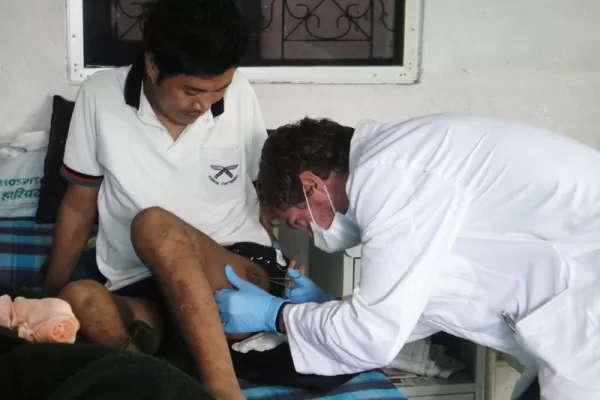
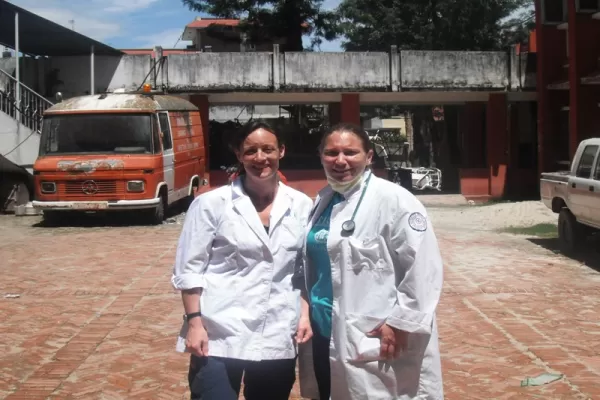
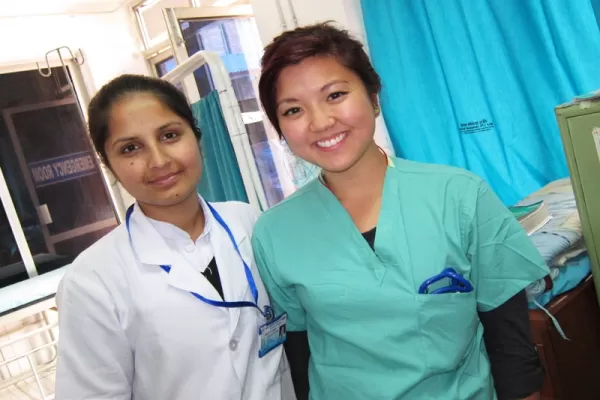
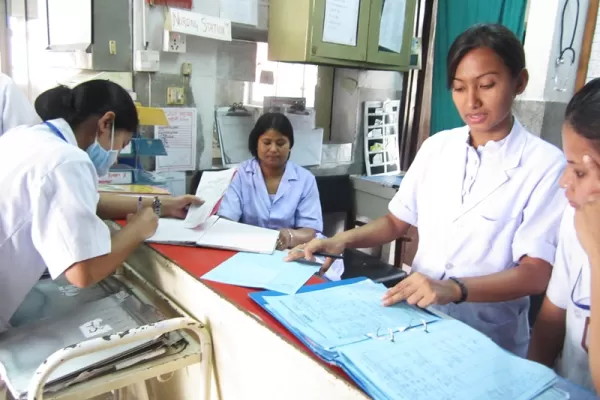
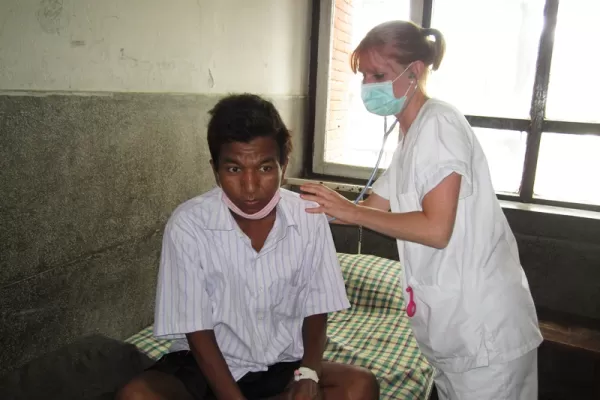
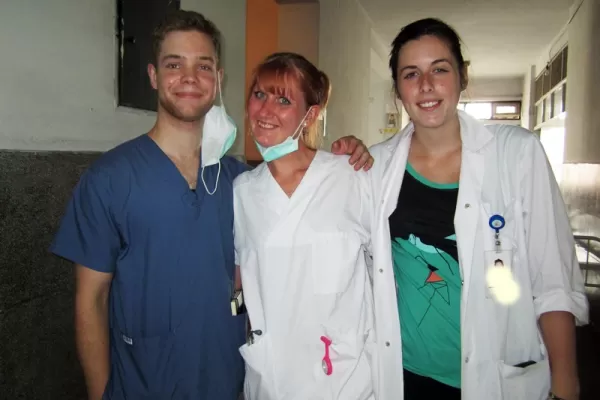
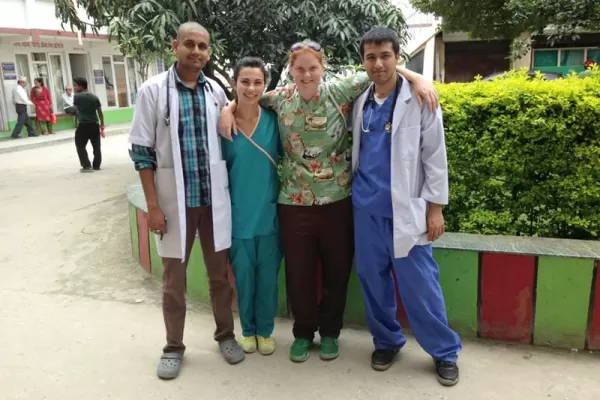
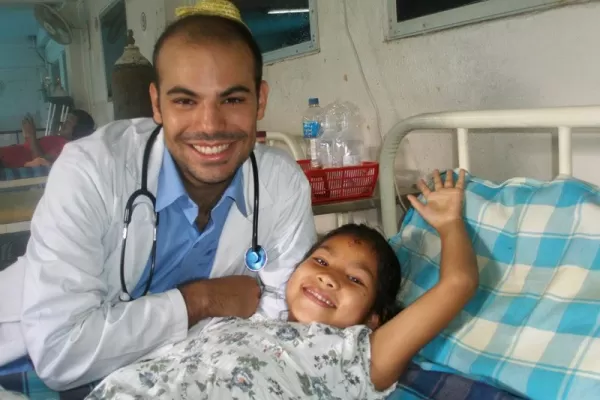
Living
Living
Es ist unsere Pflicht, Ihren Aufenthalt komfortabel und angenehm zu gestalten. Sobald Sie in Nepal landen, kümmern wir uns um Sie. Von der Organisation von Flughafentransfers über die Bereitstellung einer komfortablen Unterkunft mit Mahlzeiten Ihrer Wahl bis hin zur Unterstützung bei Wochenendtouren versuchen wir, Ihnen das Beste zu bieten.
Flughafentransfer
Die Freiwilligen werden von einem Mitarbeiter des örtlichen Koordinierungspersonals vom internationalen Flughafen Tribhuvan in Kathmandu abgeholt. Die Freiwilligen, die bereits in Nepal sein werden, werden von den Mitarbeitern an einem vorher festgelegten Treffpunkt abgeholt.
Unterkunft
Die Unterbringung erfolgt gemeinschaftlich in einem Hotel/Gästehaus in Kathmandu. Die Unterkünfte sind ordentlich und sorgen für einen komfortablen Aufenthalt während Ihres Freiwilligeneinsatzes in Nepal. Alle Unterkünfte verfügen über fließendes Wasser, Strom und alle grundlegenden Annehmlichkeiten. Die Unterkünfte verfügen über Warmwasserduschen für den Winter und WLAN-Internet ist verfügbar. Gegen Aufpreis sind im Hotel auch Privatzimmer verfügbar.
Die Unterkunft liegt sehr zentral und ist fünf Minuten vom beliebten Thamel-Viertel entfernt.
Orientierung
Eine Orientierung und Einweisung erhalten Sie von Ihrem örtlichen Programmkoordinator. Wir decken Bereiche wie Kultur, Begrüßung, Orte, Transport usw. ab. Beginnen Sie Ihre Freiwilligenerfahrung mit der einwöchigen Sprachkulturorientierungswoche in Kathmandu .
Mahlzeiten
Abhängig von Ihrem Arbeitsplan werden allen Freiwilligen zwei nepalesische Mahlzeiten (Frühstück und Abendessen) angeboten. Das Frühstück besteht normalerweise aus Brot, Butter, Marmelade, Sandwich, Tee usw. Zu den typischen Mahlzeiten gehören Dal (Linsen), Reis, Gemüse, Hühnchen usw Fleisch usw. Das Hauptgericht der meisten Nepalesen ist Dal Bhat, das aus Linsensuppe (Dal), Reis (Bhat) und Gemüse in Curry (Tarkari) besteht. Wenn Sie besondere Ernährungsbedürfnisse haben, können Sie uns dies im Voraus mitteilen und wir können unser Bestes geben, um dem gerecht zu werden.
Während Ihrer Freizeit
An den Wochenenden machen sich Freiwillige normalerweise auf den Weg in den Chitwan-Nationalpark, um eine Safari zu unternehmen, oder in die wunderschöne Stadt Pokhara. An Wochentagen sind die Abende frei und die Freiwilligen verbringen ihre Zeit in der Regel in Thamel, einem beliebten Backpacker-Touristengebiet mit zahlreichen Cafés und Restaurants, oder erkunden einige der berühmtesten Sehenswürdigkeiten von Kathmandu.
Dates
Dates
January
05
19
February
02
16
March
02
16
April
06
20
May
04
18
June
01
15
July
06
20
August
03
17
September
07
21
October
05
19
November
02
16
December
07
21
January
04
18
February
01
15
March
01
15
April
05
19
May
03
17
June
07
21
July
05
19
August
02
16
September
06
20
October
04
18
November
01
15
December
06
20
Available
Filling Fast
Booked Out
Costs
| Duration |
Program Fee
|
Choose your currency
|
|---|---|---|
| 2 Weeks | $535 | |
| 3 Weeks | $700 | |
| 4 Weeks | $900 | |
| 5 Weeks | $1100 | |
| 6 Weeks | $1295 | |
| 7 Weeks | $1500 | |
| 8 Weeks | $1650 | |
| Extra Week | $200 |
Please Note: An application fee of is charged over and above the program fee as an application payment. A 5% international banking fee is charged for credit card payments of program fee in USD/AUD.
Wofür bezahlen Sie?
- 24-Stunden-Unterstützung und Unterstützung durch das Personal
- Umfassende Informationen vor der Abreise
- Vom Flughafen abholen
- Orientierung
- Essen (2 mal am Tag)
- Unterkunft
- Reise- und Krankenversicherung (gegen Aufpreis erhältlich)
Was ist NICHT enthalten?
- Flugpreis
- Rückfahrt zum Flughafen (Kann gegen Aufpreis arrangiert werden)
- Nahverkehr
- Visa Gebühren
- Impfungen
FAQ's
Application and Program Details
-
How long will it take to process my application? Will my application be accepted ?
-
Usually, it takes around 10-12 working days for your application to be processed and placement to be confirmed by our team. After your application is accepted, your placement document will be updated in your ‘My Account’ online and you can view the information in your account. The application acceptance depends on the availability of seats in the project as well as the eligibility criteria of the program (age, skills and experience etc).
-
When do I need to arrive in Nepal for my program? What will happen once I arrive in Nepal?
-
All volunteers need to arrive in Kathmandu on the mentioned program starting date.
All volunteers are provided with the airport pick up from the Tribhuvan International Airport (Airport Code: KTM) by the local coordinator or representative. Those who are arriving overland or are already in Nepal will be picked up at? a meeting point decided beforehand. -
What will be my usual working hours?
-
Volunteers usually work for 5 to 6 hours a day, however. It can vary depending on their program. You will have the weekend off so you can go and travel on weekends. However, in some placements, you will need to work on some Saturdays as well.
-
Are there any necessary requirements to participate in the Nepal volunteer programs?
-
The minimum age requirement for the programs in Nepal is 17 years. For the Medical program, volunteers must be 18-year-old and above.
He/she should have the flexibility to adjust in new environment and culture.
For Medical Program – Pre-Medical, Medical and Nursing students as well as Medical Professionals are welcome to join. Participants with other qualifications in the medical field such as CAN, EMT can also join the program.
Participants must be in good health.
Volunteers who are 16-year-old are also accepted in the Childcare program in Nepal. However, they need to provide a notarized parental consent form. -
Does VolSol provides with a reference or a certificate after program completion?
-
Yes, we will provide you with the Certificate after successful completion of your program. The certificate is provided on request.
-
Can I volunteer as part of a group?
-
Yes, you are welcome to take part in any of the volunteering projects in Nepal as a group. It is a popular destination for group participation. Our Nepal programs have hosted large student groups from around the world including that of schoolies coming for short term volunteering programs. Also, we can design special group programs for groups of 5 or more. Our programs are designed to be safe, affordable and offer a great group volunteering experience to the volunteers.
In our experience of more than 12+ years we have enabled and facilitated volunteer program placements for college groups, university groups, high school groups, group of families, group of couples as well as groups of colleagues. -
Does VolSol provides discount if I choose more than one program or if I am a returning volunteer?
-
If you are planning to come for multiple programs in your trip, you will have to pay the application fees just once. Your application fee is valid for a year's time (from the date of application). You will not have to pay the application fees again if you come within the mentioned time frame.
For our returning volunteers, $50 discount is provided for the application fee for their next VolSol program. -
When should I apply for the volunteer programs in Nepal?
-
VolSol recommends all its volunteers to apply for the desired programs well in advance. Our major booking seasons are from January to July and September to December.
As we have limited spots available in our programs and serve on first come first basis, it is strongly recommended to apply for the program and book your spots well in advance. You can book your spot in the program by filling an online form and paying the application fee.
Once you complete your application, your individual 'My Account' will be active in which you will receive your placement confirmation after which you can pay the program fees. You can pay the program fees later as well in installments, but 45 days before the program starts. -
What are the Program Locations in Nepal?
-
In Nepal, all our volunteering programs as well the accommodations are based in and around the capital city, Kathmandu.
Flights and Visa
-
What are the recommended inexpensive airline options to reach Nepal?
-
Tribhuvan International Airport (KTM) is the major international airport serving all flights arriving in Nepal. It is well connected with direct flights from major Asian and Middle Eastern countries. If you are arriving from North America or Europe, you will probably need to book a flight with a stopover at a Middle Eastern city such as Abu Dhabi or Doha.
The major airlines flying into Kathmandu are:Qatar Airways
Etihad Airlines
Air Arabia
Air India
Air Vistara
Silk Air
Dragon Air
Thai Airways
Fly Dubai
AlJazeera
-
Tell me more about Visa for Nepal
-
Getting a Visa for this little Himalayan nation isn’t difficult in any way. You can get your visa on arrival at Kathmandu Airport itself or alternatively, you can also apply for Nepal Visa at your nearest Nepal Embassy.
Accommodation and Living
-
Can I know more about accommodation and food arrangements?
-
Accommodation is shared on the same gender basis in the home stay/host family which is managed by the VS Nepal in-country coordinator. The accommodations are neat and provide a comfortable stay during your volunteering period in Nepal. The accommodations have running water, electricity and all basic amenities available. Volunteers need to understand that living conditions in Nepal can be different as compared to what you have back at home. You need to be flexible, open minded and adapt to the culture and environment. Living with other like-minded volunteers from around the world is a great experience in itself. Two meals a day are provided to the participants (Breakfast and Dinner).
-
Can vegetarians be accommodated?
-
Yes – please do ensure that you inform the local team about your food preference and they can guide you so that you get to taste the best food available out there! Also, please do mention your specific food preference in the application form as well.
-
Where can I change my money in Nepal? Are there ATMs in Nepal?
-
There are many money exchange shops in Kathmandu city. The best option is to change your money at the airport counters itself. There are ATMs located all around the capital city, Kathmandu as well.
-
Would I have free time during my program? Can I do sightseeing during my program?
-
Typically, volunteers are required to put 5-6 hours every day, 5 days a week. However, work timing is dependent on the project chosen by the volunteers and can vary. You will get free time in the evenings and on the weekends. You can utilize this time to explore the local market streets of Thamel, visit Durbar Square, see evening prayers at the “ghat” of the Pashupatinath Temple and also visit Swayambhu temple. During the weekend, you can visit Chitwan National Park or go visit the famous tourist destination Pokhara.
We encourage our volunteers to travel. We have designed various weekend tours which can be booked under the ‘Add-on Tours’ section in your ‘My Account’. Your in-country coordinator will also help you book and organize the tours once you are in the country. -
What should I pack for my trip to Nepal?
-
We always suggest our volunteers to pack light. Being a country on the lap of the Himalayas, the temperature is usually on the colder side, and we would recommend you to get woolen wears and jackets. Pack comfortable clothes and walk shoes. Nepal is a conservative country with numerous sacred worshipping places where short, tight and revealing clothes wouldn't be allowed.
-
How do I get to the accommodation and the program location?
-
Your in-country coordinator will take you to your placement location from the airport and introduce you to everyone after giving you a basic orientation about the program, city, culture etc. You will be told about the daily mode of transport that you will need to take to go to your project location. Usually, the projects are within short distance from your accommodations. Some projects are within walking distance while others are a short ride away.
-
Are there more expenses once I arrive in Nepal?
-
Nepal is an inexpensive country. It is recommended to get your personal stuff from a proper general store that sells on MRP (Maximum Retail Price). Locals can often quote high prices for souvenirs, try to bargain and you will get a good price. A simple bracelet should not cost you more than 50-100 NC (Nepalese Currency). Food and dining in Nepal are very reasonable. A 10% (flexible) service charge is applicable in dining and lounging areas.
Health and Safety
-
Do I need to buy a health insurance?
-
Yes, for all participants it is mandatory to have a travel medical insurance. To provide the best option to our participants, we offer insurance coverage in collaboration with a leading insurance provider at a very nominal cost.
-
How safe is Nepal and Kathmandu in particular?
-
This fabled land of Buddha attracts thousands of travelers from around the world. The country has easily embraced the western culture and is one of the most traveled destinations in the world. Women, especially, can feel relaxed in this country. It is safe to go out in the night; however, avoid the company of strangers. Volunteers are advised to follow the safety guidelines given in the pre-departure handbook as well as told to you by your coordinator during orientation.
-
What immunizations/vaccinations will I need?
-
Carry general medicines with you, other than that consult your doctor before flying. We recommend these basic vaccinations for your safety:
Tetanus
Hepatitis A and B
Typhoid
You are also requested to consult your doctor before traveling to Nepal to get a list of recommended vaccinations.
Also, if you have altitude sickness then ask your doctor to prescribe proper medicines.
Connect with Past Volunteers
-
How can I connect with past Volunteering Solutions Nepal alumni as well as other former and current volunteers?
-
We encourage volunteers to get in touch with former Volunteering Solutions participants and also other program participants joining our projects. You are recommended to join thehttps://www.facebook.com/VolunteeringSolutions/">; Volunteering Solutions Facebook Page or Facebook">https://www.facebook.com/groups/volunteeringsolutions/">Facebook Group to connect with other participants and our team.
You can also visit the Nepal Program Reviews page to view the testimonials and feedbacks of our past participants.
To read alumni interviews and experiences, visit the ‘Meet">https://www.volunteeringsolutions.com/meet-a-volunteer">Meet a Volunteer’ section on our website.



























